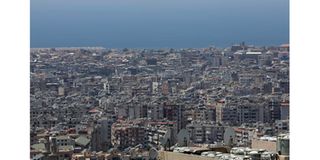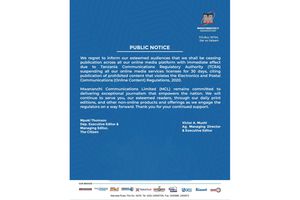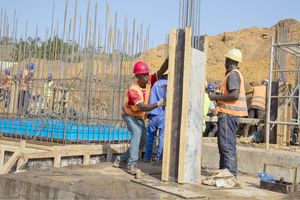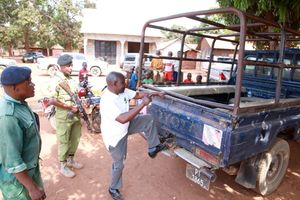Don't bomb Beirut: US leads push to rein in Israel's response

A view of Beirut's southern suburbs, as seen from Baabda, Lebanon July 28, 2024. PHOTO | REUTERS
What you need to know:
- Washington is racing to avert a full-blown war between Israel and the Iranian-backed Lebanese movement Hezbollah after the attack on the Israeli-occupied Golan killed 12 youths at the weekend, according to the five people who include Lebanese and Iranian officials plus Middle Eastern and European diplomats.
Washington . The United States is leading a diplomatic dash to deter Israel from striking Lebanon's capital Beirut or major civil infrastructure in response to a deadly rocket attack on the Golan Heights, five people with knowledge of the drive said.
Washington is racing to avert a full-blown war between Israel and the Iranian-backed Lebanese movement Hezbollah after the attack on the Israeli-occupied Golan killed 12 youths at the weekend, according to the five people who include Lebanese and Iranian officials plus Middle Eastern and European diplomats.
Israel and the US have blamed Hezbollah for the rocket strike, though the group has denied responsibility.
The focus of the high-speed diplomacy has been to constrain Israel's response by urging it against targeting densely populated Beirut, the southern suburbs of the city that form Hezbollah's heartland, or key infrastructure like airports and bridges, said the sources who requested anonymity to discuss confidential details that haven't been previously reported.
Lebanon's deputy parliament speaker Elias Bou Saab, who said he had been in contact with US mediator Amos Hochstein since Saturday's Golan attack, told Reuters Israel could avert the threat of major escalation by sparing the capital and its environs.
"If they avoid civilians and they avoid Beirut and its suburbs, then their attack could be well calculated," he said.
Israeli officials have said that their country wants to hurt Hezbollah but not drag the region into all-out war.
The two Middle Eastern and European diplomats said Israel hadn't made any commitment to avoiding strikes on Beirut, its suburbs or civil infrastructure.
The US State Department said it wouldn't comment on the specifics of diplomatic conversations, though it was seeking a "durable solution" to end all cross-border fire.
"Our support for Israel's security is ironclad and unwavering against all Iran-backed threats, including Hezbollah," a spokesperson told Reuters.
White House spokesperson John Kirby told reporters that Israel had every right to respond to the Golan strike, but that nobody wanted a broader war.
"As for conversations over the weekend, you bet we've had them and we had them at multiple levels," he added. "But I'm not going to detail the guts of those conversations."
The Israeli Prime Minister's office didn't respond to a request for comment, while Hezbollah declined to comment.
The five people with knowledge of the diplomatic push over the past two days have either been involved in the conversations or briefed on them.
They said the efforts aimed to achieve a calibrated approach similar to that which contained April's exchange of missile and drone attacks between Israel and Iran, sparked by an Israeli strike on the Iranian consulate in Damascus.
An Iranian official said the United States had also conveyed messages to Tehran at least three times since Saturday's attack on the Golan Heights, "warning that escalating the situation would be detrimental to all parties."
Hezbollah is the most powerful of Iran's "Axis of Resistance" network of regional proxy groups and allied with Palestinian group Hamas.
It has been trading fire with the Israeli military across Lebanon's southern border since the Gaza war erupted last October.
During a 2006 war, the last time Israel and Hezbollah fought a major conflict, Israeli forces bombed Beirut's southern suburbs, known as the Dahiya, hitting Hezbollah-affiliated buildings as well as residential towers.
Airport was bombed and put out of action, and across Lebanon bridges, roads, petrol stations and other infrastructure were destroyed.
A French diplomat told Reuters that since the Golan attack, Paris had also been …





